Professional Vs Amateur
Author:
Unlock your full potential by engaging with our experts and community! Have questions about your fitness journey or looking for expert advice on weightlifting techniques? Don’t hesitate — leave a comment below and Sergii Putsov will provide a personalized answer and insights to help you reach your goals.
Torokhtiy is reader-supported. Some links are affiliate links, and we may earn a commission at no extra cost to you. See our disclosure page for details.
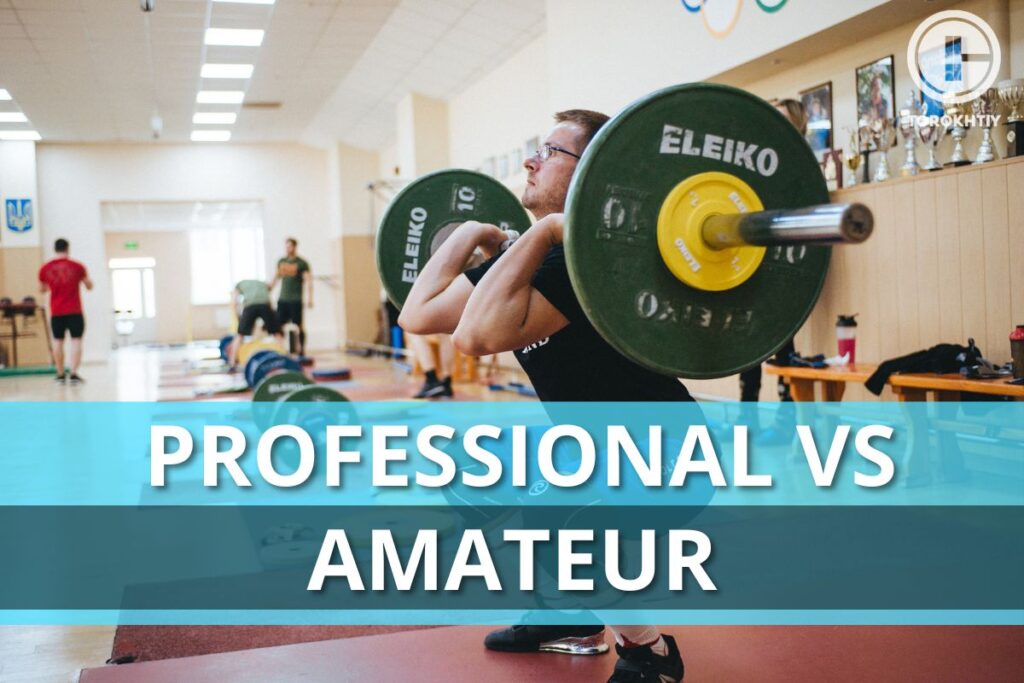
Why Is Amateur Not A Pro?
Considering the fact that functional fitness and weightlifting are in the global trend, it is not always possible to clearly draw the line between amateur and professional trainings. Striving for perfection pushes athletes to reach new heights and set themselves a defiantly high bar. You can often see how a beginner becomes so fanatical that after six months he takes part in the competitions. Certainly, there is a lot of hard work and you can definitely applaud for such a perseverance. But is that right?
Even more often you can see people with a desire to be nice looking, active and healthy, whose trainings are focused on the outstanding champions.
I want to remind everyone that the income of professional athletes directly depends on their competition results. In addition to working with a whole team of a trainer, a doctor, a masseur, they devote a lot of time to sleeping and recovery, which an ordinary person can rarely afford, simply because he needs to go to work and live the life of an average human.
Follow us!
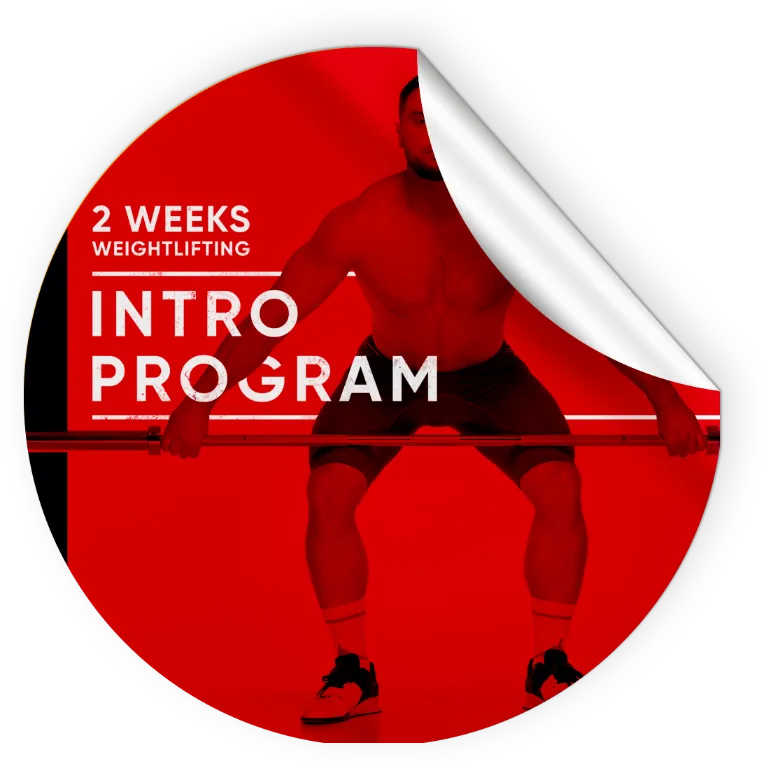
Free!
Get a 2-week Weightlifting Program as a bonus for the subscription to kickstart your training plan!

Free!
You may like it:
- Detailed Olympic Weightlifting Program For Beginners
- 12-Week Weightlifting Program For Women (Detailed Example)
- Create Your Olympic Weightlifting Program (Examples Included)
A professional athlete keeps his athletic shape throughout the whole year, his diet is often very specific, and the percentage of fat, water and muscles are different from the healthy indicators of an ordinary person. All this in itself is a great physical and psychological challenge.
Not understanding this difference, the newcomer sets himself a too elusive goal and does not see his “ordinary” progress, even when it is quite significant for his training level. For example, learning how to technically do the squats with a barbell over your head is an excellent result of the first few months of training, because so many people are basically not able to perform this movement.
The lack of understanding this fact causes for amateurs a feeling of dissatisfaction with even obviously good results. Unfortunately, chasing the result often leads to the increased anxiety, lack of recovery time, the application of too serious workloads and emotional costs. And as a result, it causes the oppression of other life areas, potentially more profitable and necessary for a normal person.
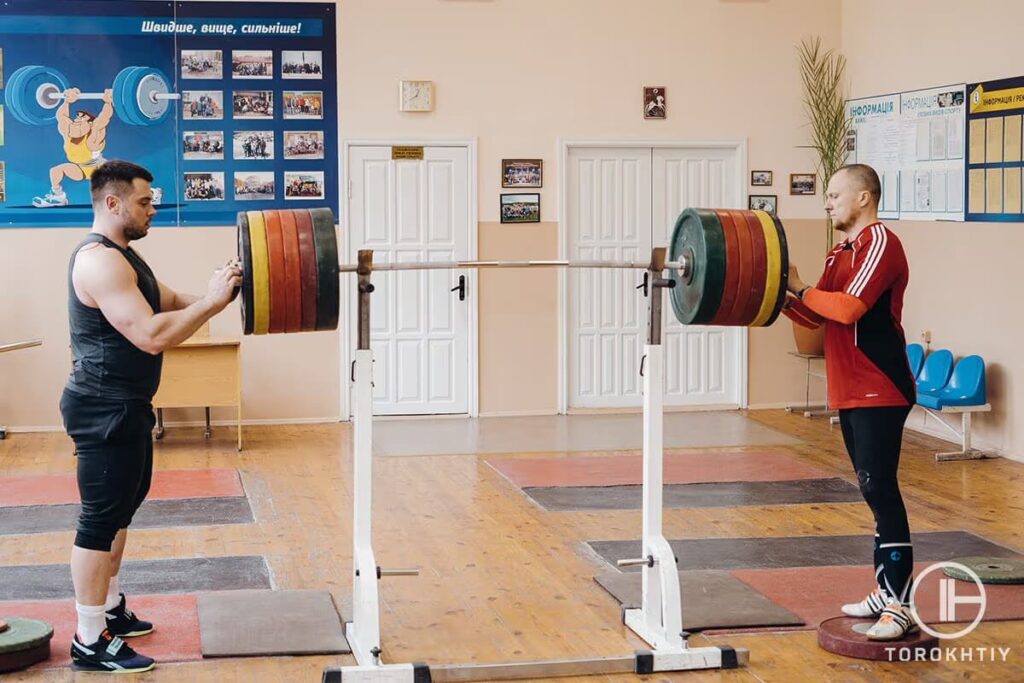
In this case, I would suggest asking yourself: will this affect my life, my income, my career, my relationship? Will these efforts be payed off? Answering honestly, I think you can make a reasonable decision about what place sports and training should occupy in your life.
Another “sensitive issue” is the belief in the concept of “no pain – no result.” The question that I am often asked at the seminars is the following: if I left the gym on my own feet, does this really mean that I did not practice well enough and are there any good reasons to skip the training?
Believe me, doing hard weight workout is easier than paying attention to the technique nuances or working to improve the position and mobility of the joints. Muscles do not always need to be overloaded, and your clothes should not always be soaking wet from sweat in order to maximize the results of training.
As practice shows, the majority of amateur athletes strive for a high level of load, even without relevant training experience, while 80% of them have some kind of health disorders. Therefore, an adequate training program and coaching supervision are very important.
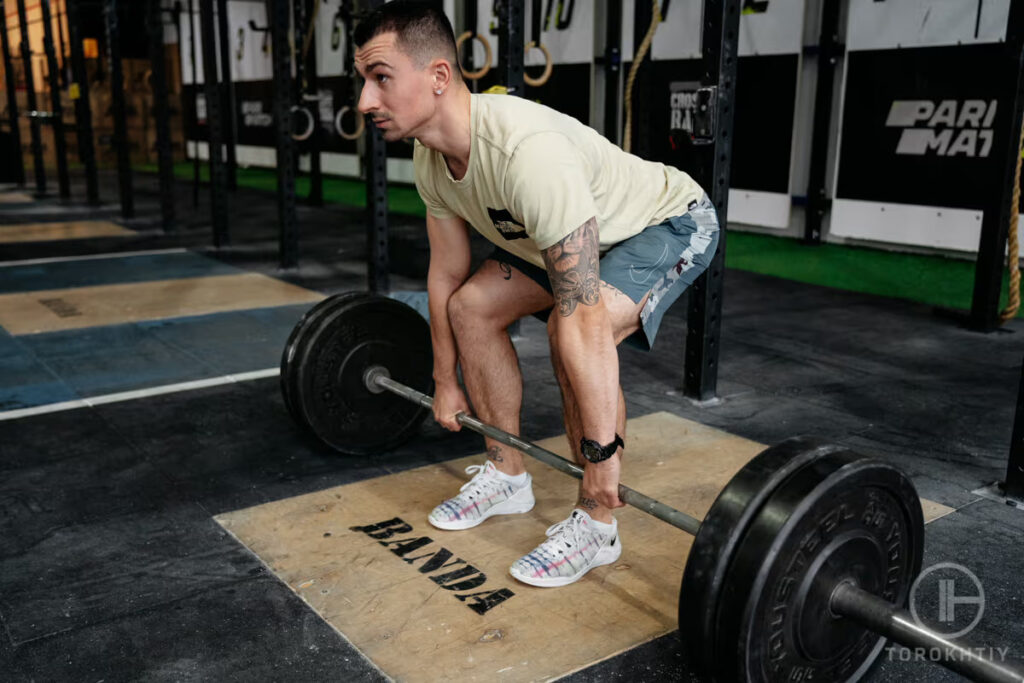
What are the risks of the “no pain – no result” approach?
- High stress level due to the lack of recovery time. You need to remember that inadequate and traumatic overloads depress the work of all body systems and reduce the immunity.
- The inability to concentrate after training and do anything other than rest. Almost all amateur athletes have a job where they should perform various specific tasks that require a high concentration of the nervous system, which is most often tired of training in the gym.
- Possible problems with the amount of food, consumed after giving up an excessively active regime, and as a result – a fat mass gain. As we have already mentioned, the diet of a professional is strictly regulated: his nutrition in the off-season time, as well as in the time of a preparatory, a pre-competition periods, and even on the day of the competition, can have its own nuances. The situation with amateurs is mostly different: a vacation has begun, you go to the sea, there are no trainings, but there is appetite – so you can imagine the result in 14 days)))
As a professional athlete and a coach, I’ll tell you a secret: there can be no result for various reasons, and it don’t always mean that you just need to “push” harder. Moreover, the results may be missing exactly because of the constant hard “pushing”. An extremely active training regimen is traumatic and can negatively affect health and well-being. In case of injury, you can drop out of the training process for a long time or say goodbye to your favorite hobby.
Train together – train right
You might be interested in:
Why Trust Us?
With over 20 years in Olympic weightlifting, strength training, nutrition coaching, and general fitness our team does its best to provide the audience with ultimate support and meet the needs and requirements of advanced athletes and professional lifters, as well as people who strive to open new opportunities and develop their physical capabilities with us.
By trusting the recommendations of our certified experts in coaching, nutrition, and sports training programming, as well as scientific consultants, and physiotherapists, we provide you with thorough, well-considered, and scientifically proven content. All the information given in the articles concerning workout programming, separate exercises, and athletic performance, in general, is based on verified data.
The product testing process is described in more detail here.
Author: Sergii Putsov
Head of Sport Science, PhD
Best Results: Snatch – 165 kg,
C&J – 200 kg
Sergii Putsov, Ph.D., is a former professional weightlifter and National team member, achieving multiple medals in the 94 kg weight category at national competitions. With a Master’s degree in “Olympic & Professional Sport Training” and a Sport Science Ph.D. from the International Olympic Academy, Greece, Sergii now leads as the Head of Sport Science. He specializes in designing training programs, writing insightful blog articles, providing live commentary at international weightlifting events, and conducting educational seminars worldwide alongside Olympic weightlifting expert Oleksiy Torokhtiy.



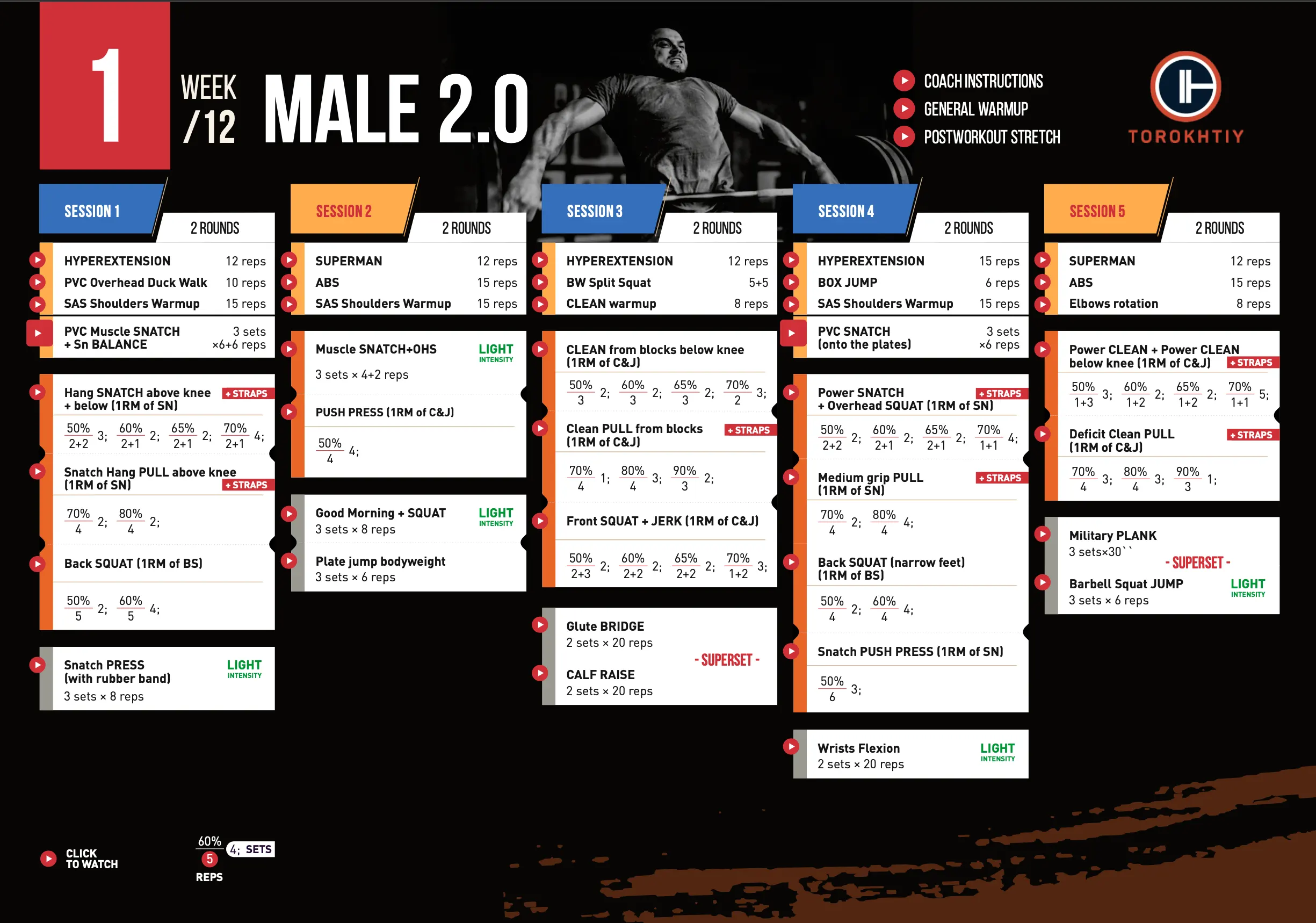
Still have questions after reading our article? Unlock your full potential by engaging with our experts and community! Don’t hesitate — leave a comment below and Sergii Putsov will provide a personalized answer and insights to help you reach your goals.